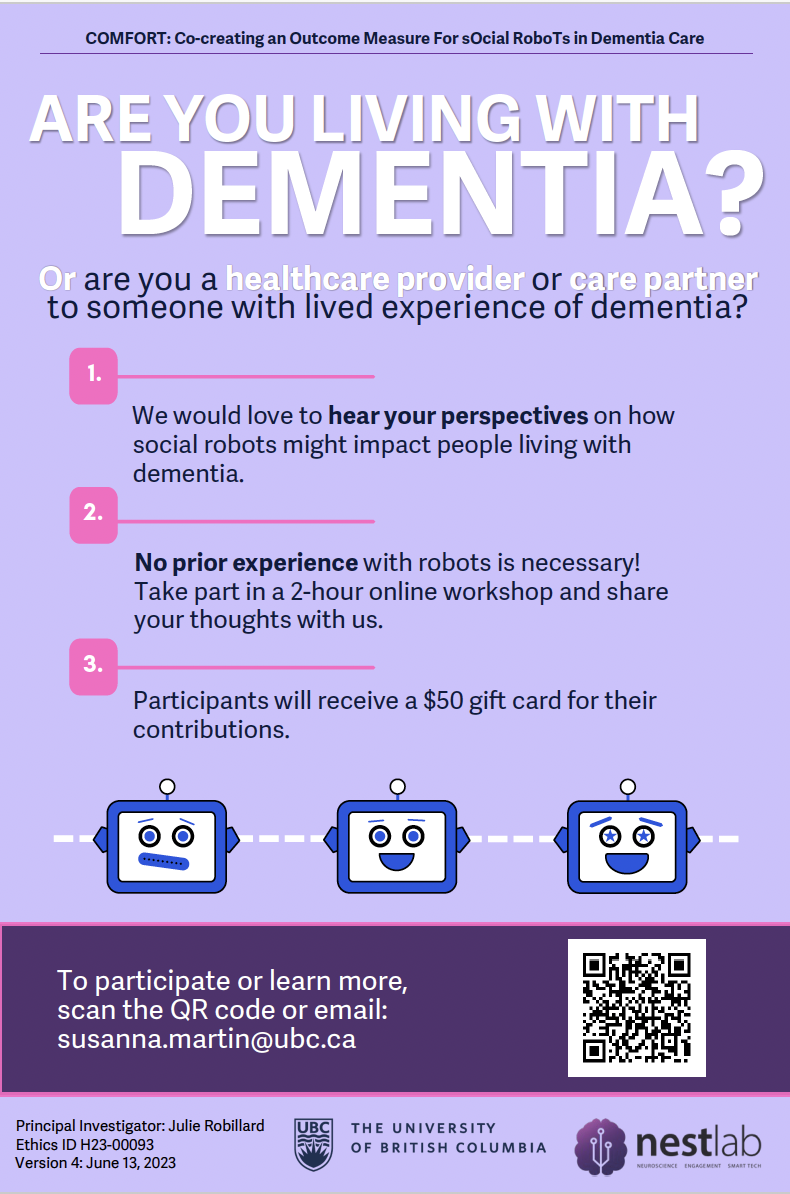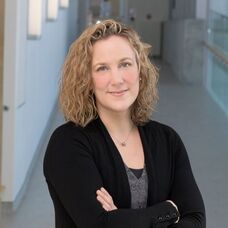We will co-create a patient-reported outcome measure (PROM) with persons living with dementia and care partners for the use of social robots in dementia care.
|
Why is this research important?
Social robots have the potential to improve independence and quality of life for persons living with dementia and their care partners. Although these devices are being deployed in many age-related contexts, tools that measure the impact of social robots in dementia care are lacking. This makes it difficult to determine whether social robots are truly useful and to compare between different devices. The COMFORT project will develop a validated outcome measure that will inform best practices and policies for social robot use in dementia care. |
We are recruiting!
|
Who can participate?
What does the study involve? The study involves taking part in a 2 hour online workshop to develop an evidence-based, patient-reported outcome measure. The use of video will be required to confirm the identity of participants. Participants will be asked to share their perspectives and experiences about the impacts of using social robots in every day life and dementia care. Participants will also be invited to complete an optional 5 minute demographic survey. Participants can receive an honorarium for their time. |
To participate:
Register your interest here: ubc.ca1.qualtrics.com/jfe/form/SV_daR5ri2KdsSOzJQ
or email Susanna Martin [susanna.martin@ubc.ca]
Register your interest here: ubc.ca1.qualtrics.com/jfe/form/SV_daR5ri2KdsSOzJQ
or email Susanna Martin [susanna.martin@ubc.ca]
Team Members
Co-Investigators:
The League (NEST Lab Older Adult Advisory Group)
Dr. Tony Prescott (Co-investigator – University of Sheffield)
Dr. Allison Lindauer (Co-investigator – Oregon Health and Science University)
Dr. François Michaud (Co-investigator - Université de Sherbrooke)
The League (NEST Lab Older Adult Advisory Group)
Dr. Tony Prescott (Co-investigator – University of Sheffield)
Dr. Allison Lindauer (Co-investigator – Oregon Health and Science University)
Dr. François Michaud (Co-investigator - Université de Sherbrooke)








